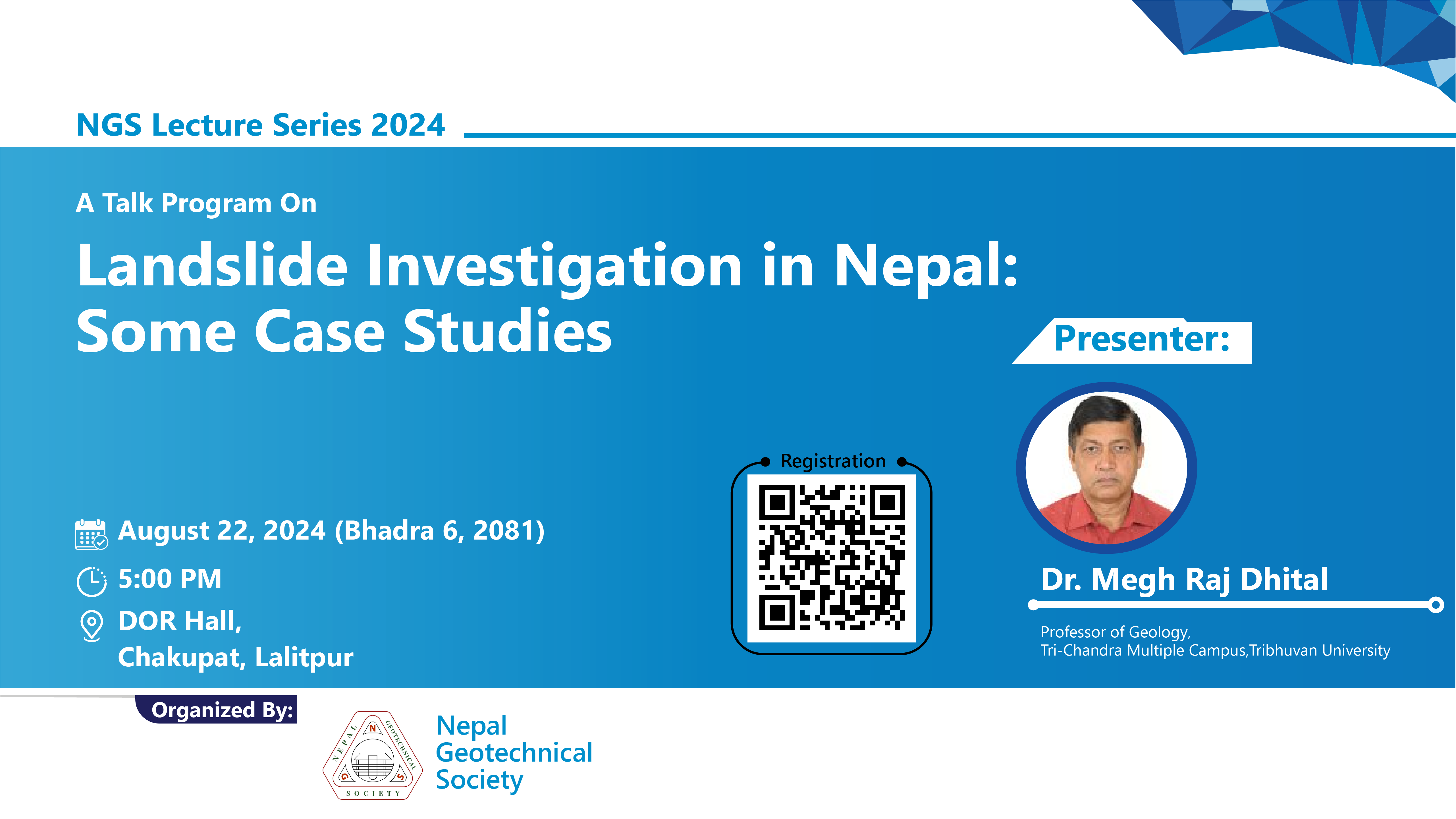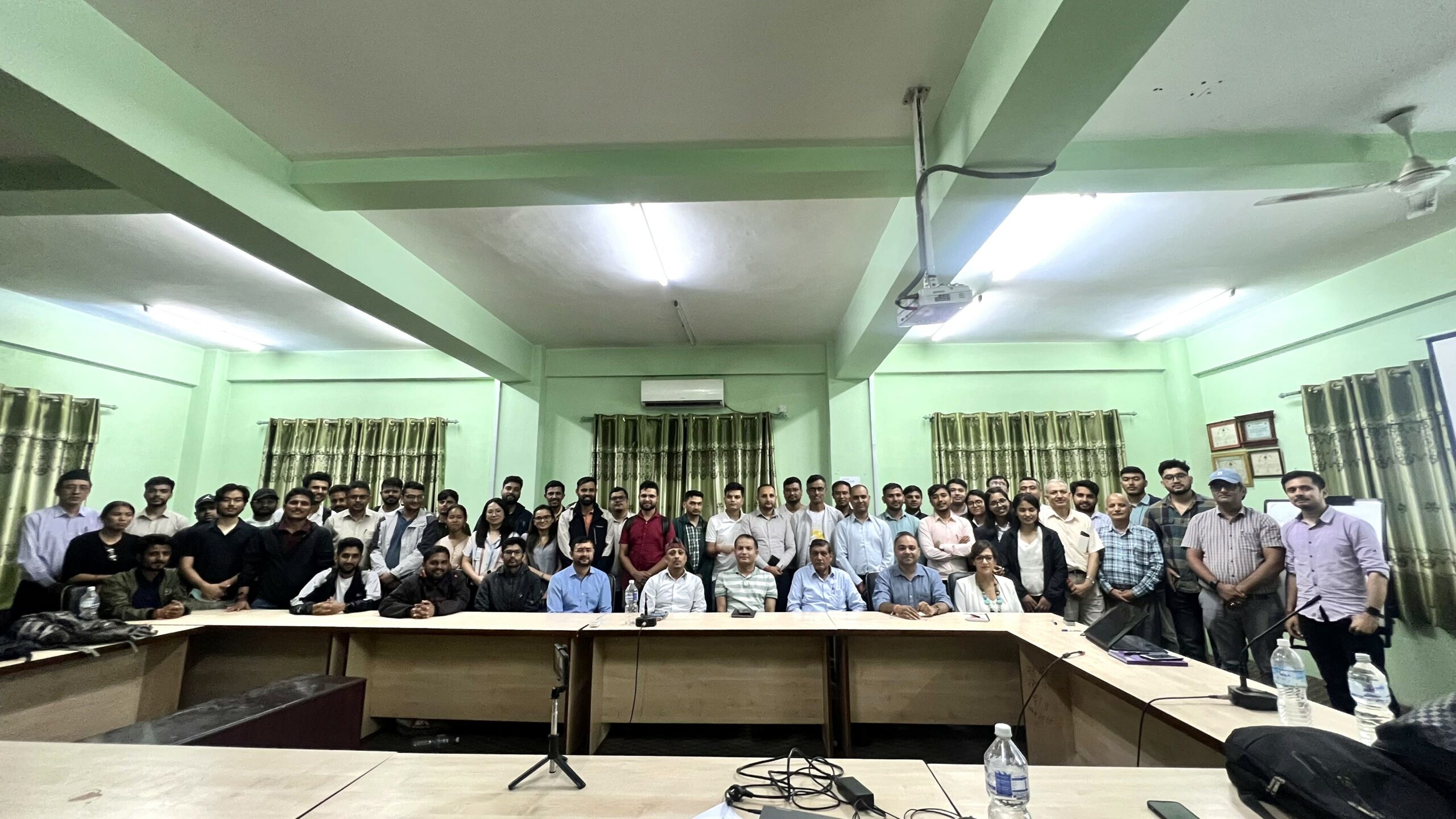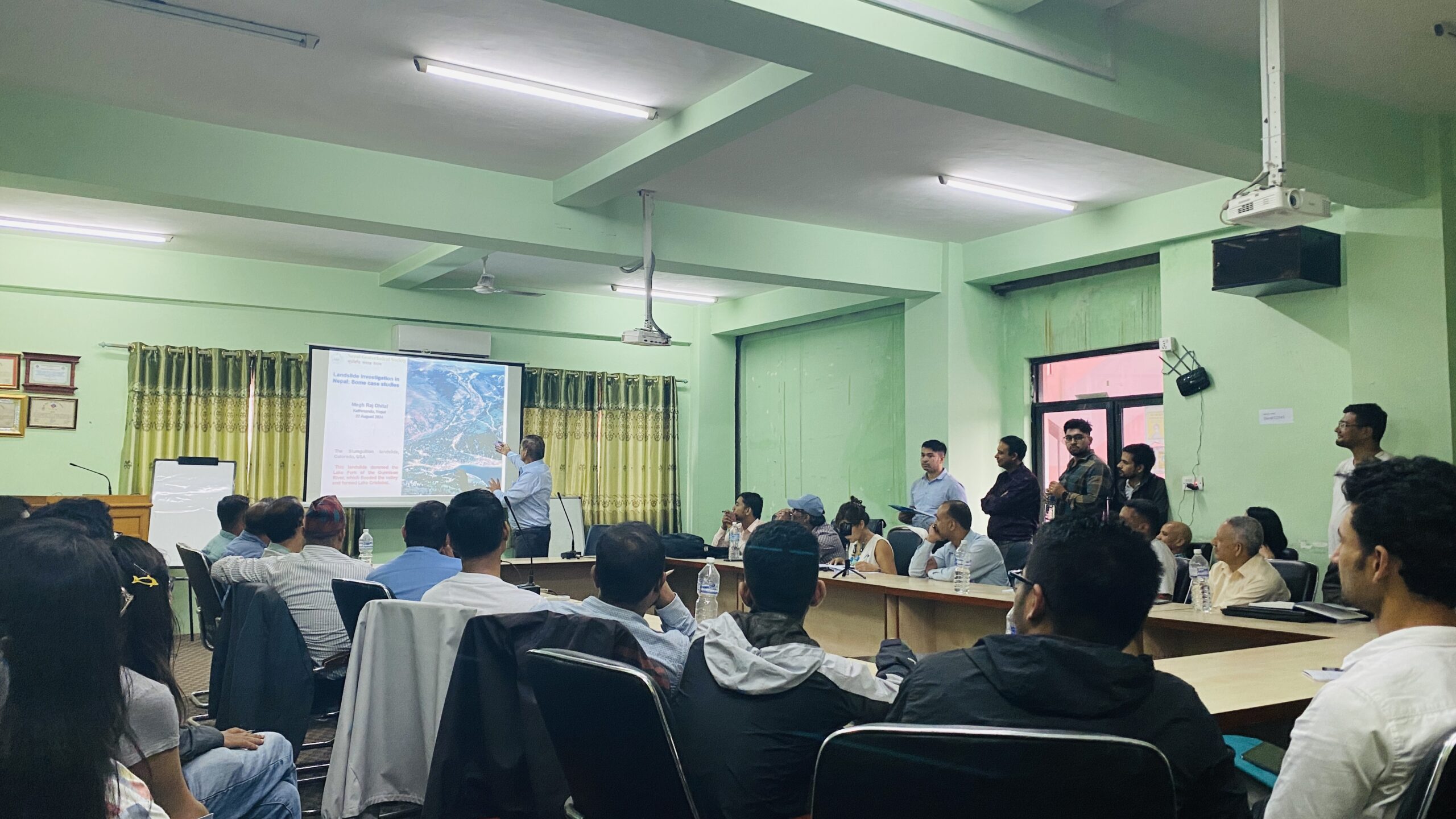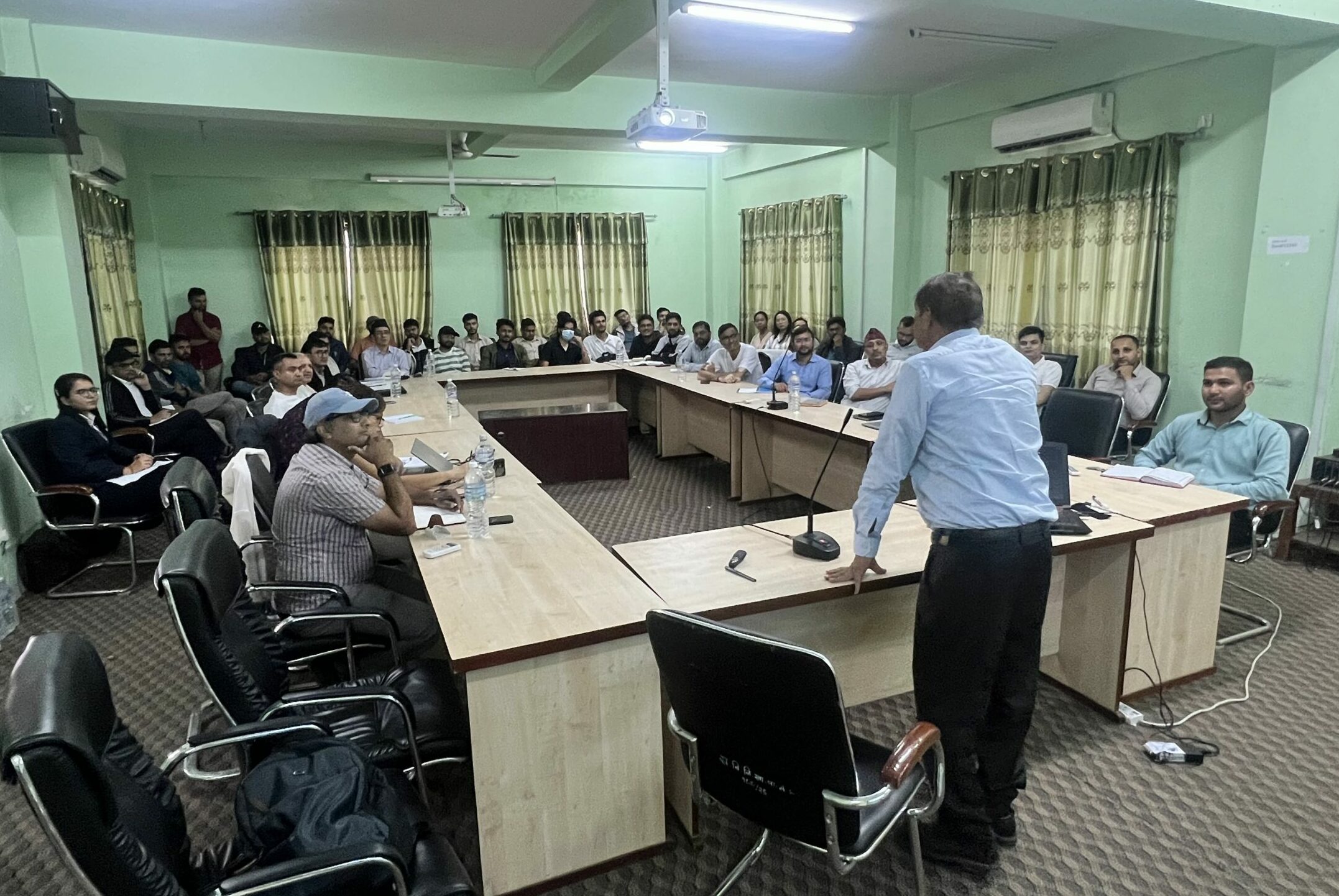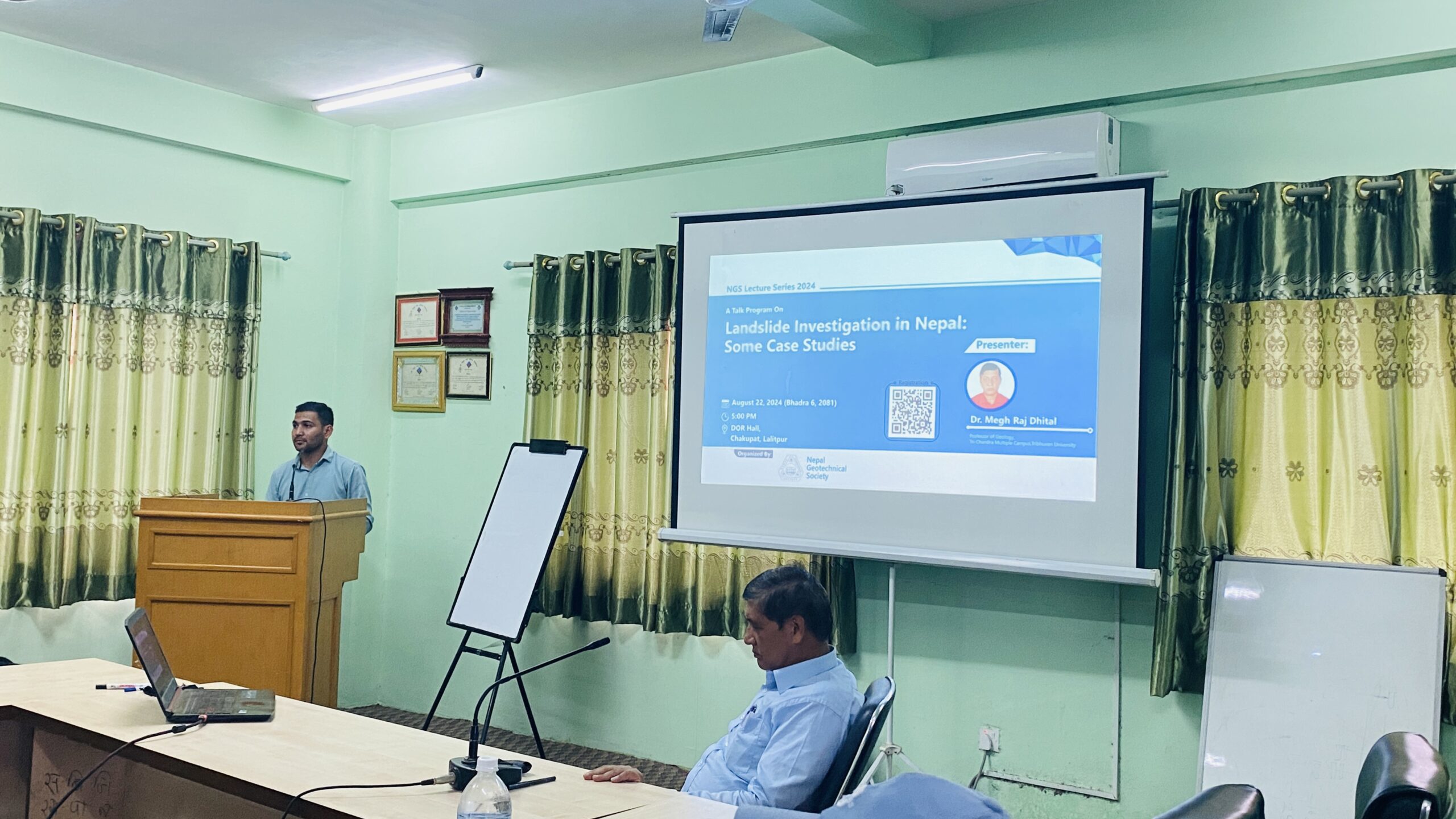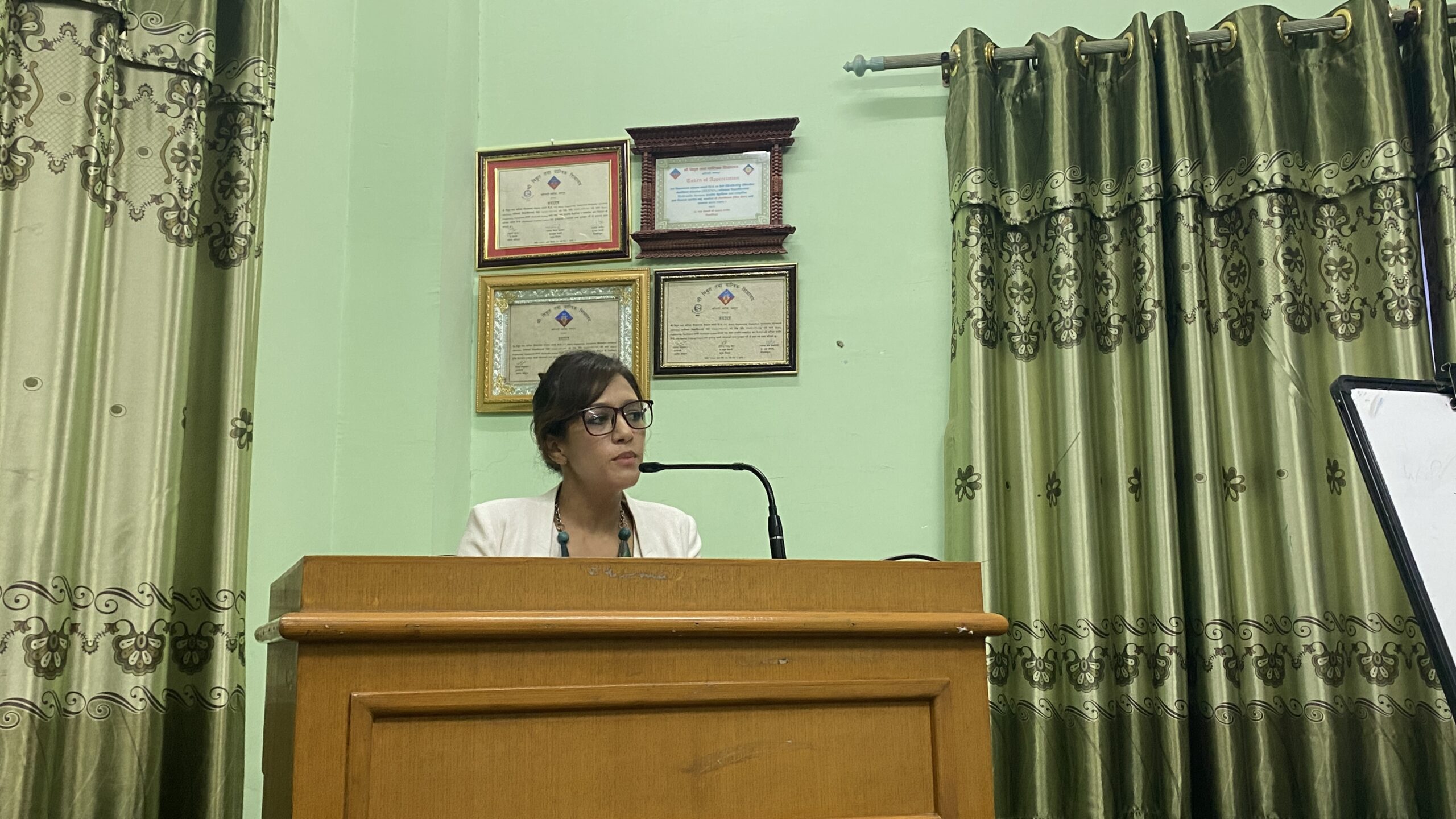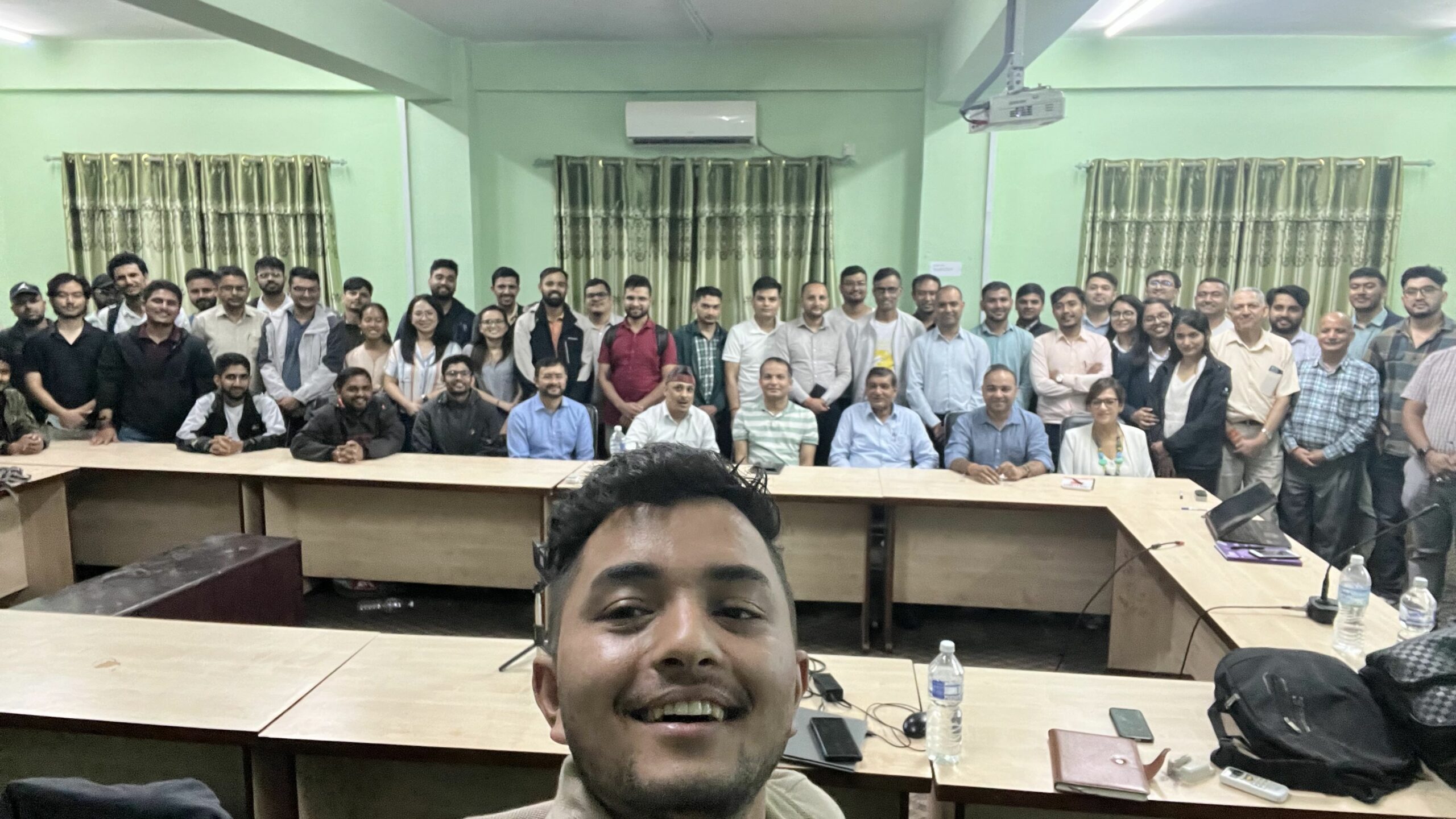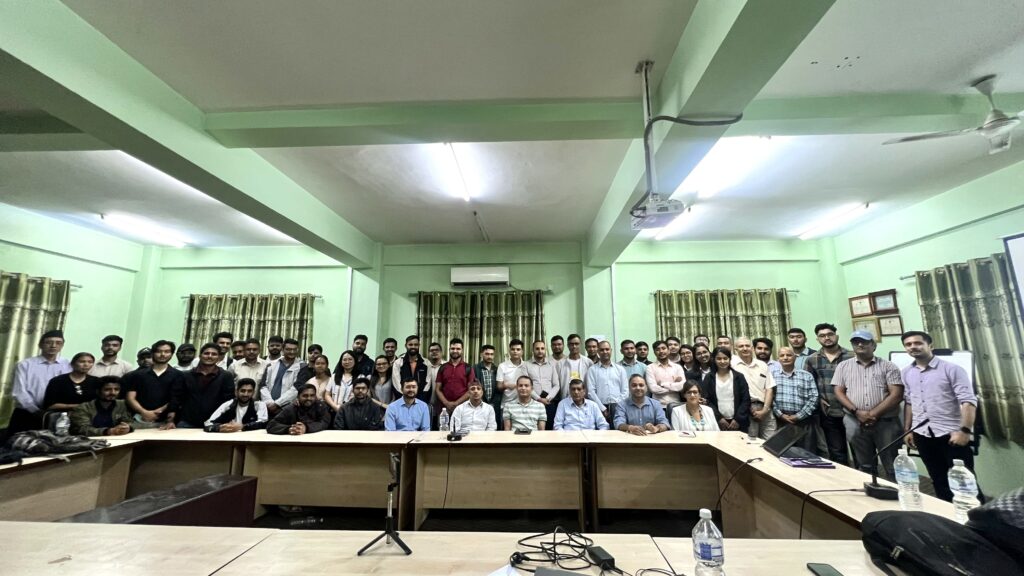On August 22, 2024, Nepal Geotechnical Society (NGS) organized an enlightening session under its esteemed NGS Lecture Series, titled “Landslide Investigation in Nepal: Some Case Studies.” This event, held at the DOR Hall, Chakupat, Lalitpur, gathered a diverse audience of more than 60 participants, including students, professionals, and practitioners from geotechnical engineering and geoscience fields.
The lecture was delivered by Prof. Dr. Megh Raj Dhital, Professor of Geology at Tri-Chandra Multiple Campus, Tribhuvan University. Prof. Dr. Dhital is renowned for his extensive work and research on geological hazards in Nepal, particularly landslides. His presentation covered fundamental principles of landslide identification and mapping, providing attendees with practical knowledge and real-world examples from his research.
The lecture delved into specific case studies, such as the Shrawan Danda Landslide in Butwal, the Daunne Landslide, and the Trishuli 3B Champani Landslide. These case studies provided attendees with insights into the complexities of landslide investigation and the interplay between geological and geotechnical factors. The session also emphasized the importance of interdisciplinary collaboration between geologists and geotechnical engineers to develop effective solutions to landslide challenges in Nepal.
The event kicked off with an engaging introduction by Er. Saroj Adhikari, Youth Coordinator of NGS, who also served as the MC for the program. In his technical remarks, Er. Rajan KC, Treasurer of NGS, highlighted the critical role of geotechnical engineering in addressing the growing threat of landslides in Nepal’s mountainous terrain. The session concluded with closing remarks by Er. Mandakini Karki, Vice President of NGS, who reiterated the significance of knowledge sharing and collaboration in advancing the field of geotechnical engineering in Nepal.
The event successfully fostered a dynamic exchange of ideas and strengthened the connection between academic knowledge and practical applications in the field. The NGS Lecture Series continues to serve as a platform for professionals, students, and experts to collaborate, learn, and contribute to the advancement of geotechnical engineering in Nepal.
The event wrapped up with a group photograph and refreshments, providing an opportunity for attendees to network and discuss potential collaborations. NGS expresses its gratitude to all participants for making this event a success and looks forward to hosting more such informative sessions in the future.
